
It allows to keep PV going, with more focus towards AI, but keeping be one of the few truly independent places.
-
He also wrote good book http://www.amazon.com/Digitale-Demenz-Manfred-Spitzer/dp/3426276038/
-
Recording in English
-
Very interesting. The woman promoting the use of media as a learning tool seemed utterly out of her depth. One gets the impression Spitzer refrained from destroying her position the same way an adult refrains from bringing their "A" game when participating in sports with children.
-
I suggest to check whole book, as he is not against use computers or media in learning in general. Just points the reasons were it is not useful or damaging and, sadly, it is lots of cases.
-
Agreed, this was very clear from the beginning.
-
Book also has good chapter explaining by using science why current films and TV are such as they are today :-)
In short - because monkeys who were not interested in opposite sex monkeys (and sex in general) and were not interested in avoiding danger and dominant species of same sex just did not pass natural selection :-)
-
Google Inc. (NASDAQ: GOOG, GOOGL) today released the results of the Mobile Voice Study, a look at voice search habits among American smartphone users across different age ranges. Among teens 13-18, 55% use voice search every day.
Well, bad.
-
I've just read a book with a more optimistic vision on technology and how we (have to) relate to it. It is this http://mitpress.mit.edu/books/net-smart . Very interesting antropological notions and good suggestions on how to use the potential of the internet without being crushed by it.
-
The future of digital culture—yours, mine, and ours—depends on how well we learn to use the media that have infiltrated, amplified, distracted, enriched, and complicated our lives.
Well, your book is mostly about the simple position - guys, corporations made this shit, let's learn to eat with dignity. I have some issues with optimism about fighting tools intentionally made to make you dumber. With search engine that adjust results so you won't see anything that can disturb your current state of mind. With mass media that just lack useful information. trying to find useful scientific information in the field where copyright monsters hourly check all cyberspace and fine authors who attempted to share info for free.
-
Students in 114 schools across the country are about to get free iPads straight from Apple, thanks to the tech titan's $100 million pledge to President Obama's ConnectED initiative. Cupertino first announced its support for the project (which aims to give students access to high-speed internet) in February this year, but now we know how the company's fulfilling its multimillion-dollar promise. According to Apple's ConnectED page, 96 percent of the students in each of its 114 chosen schools are eligible for free or, at least, reduced-priced lunches. Also, half of the schools are in urban areas, with students who are mostly of Black, Hispanic, Native American and Asian heritage
They do it for good. May be. Or not.
-
I recently watched the above linked recording. Mr. Spitzer makes numerous good points and recommendations, especially with regards to the distraction that media consumption causes, keeping people from focusing on a topic, or the problem of "copying and pasting stuff instead of understanding it" in depth.
But in one aspect I cannot agree with him: When he points out that the non-usage of navigation computers promotes natural navigation skills this may certainly be correct, but wide area navigation without computers is simply a skill not required by most people anymore. Would he also suggest to go on mushroom forays to train the brain in pattern recognition of edible mushrooms? To milk cows to acquire the motor skills to efficiently milk cows? To learn animal noises to distinguish the harmless from the potentially dangerous?
I think Mr. Spitzer is sometimes ignoring the fact that the range of skills useful to the majority of people is ever changing over time. Ask some non-media-distracted/educated native from North Sentinel island to travel from one end of Tokyo to the other, and I'm sure he will fail miserably in comparison to average Joe from the tribe of Playstation.
-
When he points out that the non-usage of navigation computers promotes natural navigation skills this may certainly be correct, but wide area navigation without computers is simply a skill not required by most people anymore.
Well, you completely missed his point. His point is that people rely on navigation tools in situation where it is not required, like going from home to work and back every day, going to very near places, etc. Human brain is made in such a way that if it has chance to not do a thing it will rest. Many modern people are actually navigation idiots, as they do not have proper representation of their city and neighborhood sometimes. And in reality, contrary to that firms tell you - your brain is really good at navigation, just need some training and repetitions.
Would he also suggest to go on mushroom forays to train the brain in pattern recognition of edible mushrooms? To milk cows to acquire the motor skills to efficiently milk cows? To learn animal noises to distinguish the harmless from the potentially dangerous?
This one I do not understand. If you like to not play games and get some rewarding activities doing all this things can be good :-) I can tell big amount of mushrooms without any iPhone app, can milk a cow, unfortunately, besides few real wolfs who were not hungry I have not much personal experience with dangerous animals :-)
I'm sure he will fail miserably in comparison to average Joe from the tribe of Playstation
Well, contrary to iPhone presentations, most people on Earth do not frequently travel, do not visit new exotic and unknown restaurant each day. In fact, their life is quite determinate most of the time and usage of the proposed tools just do only harm without any plus sides.
-
Heavy device use during young childhood could interfere with development of empathy, social and problem solving skills that are typically obtained by exploring, unstructured play and interacting with friends.
"These devices also may replace the hands-on activities important for the development of sensorimotor and visual-motor skills, which are important for the learning and application of maths and science."
-
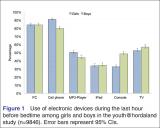
 hdd41.jpg800 x 642 - 68K
hdd41.jpg800 x 642 - 68K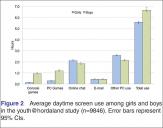
 hdd42.jpg784 x 616 - 65K
hdd42.jpg784 x 616 - 65K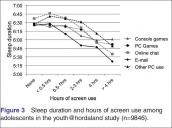
 hdd43.jpg776 x 579 - 69K
hdd43.jpg776 x 579 - 69K -
The study, from researchers at the University of Waterloo and published in the journal Computers in Human Behavior, suggests that smartphone users who are intuitive thinkers — more prone to relying on gut feelings and instincts when making decisions — frequently use their device’s search engine rather than their own brainpower. Smartphones allow them to be even lazier than they would otherwise be.
“Our research provides support for an association between heavy smartphone use and lowered intelligence,” said Pennycook. “Whether smartphones actually decrease intelligence is still an open question that requires future research.”
https://uwaterloo.ca/news/news/reliance-smartphones-linked-lazy-thinking
http://www.sciencedirect.com/science/article/pii/S0747563215001272
-
After two years in college, 45% of students showed no significant gains in learning; after four years, 36% showed little change.
Students also spent 50% less time studying compared with students a few decades ago, the research shows.
http://usatoday30.usatoday.com/news/education/2011-01-18-littlelearning18_ST_N.htm
-
As 71 percent of consumers are equally as interested in quantifying themselves as they are in wearables, quantification of behavior today starts with wearables. But people see a range of cloud-based services giving them the potential to live healthier and longer lives – whether the technology can be worn or not.
http://www.ericsson.com/news/150312-living-longer_244069647_c
-
The following numbers regarding the media consumption habits of average Americans come directly from Nielsen’s most recent “Total Audience Report“. The amount of time per day that Americans spend using these devices is absolutely staggering…
- Watching live television: 4 hours, 32 minutes
- Watching time-shifted television: 30 minutes
- Listening to the radio: 2 hours, 44 minutes
- Using a smartphone: 1 hour, 33 minutes
- Using Internet on a computer: 1 hour, 6 minutes
When you add it all up, the average American spends more than 10 hours on all this.
-
Dr Zaheer Hussain, lecturer in Psychology at Derby, co-authored what is believed to be the UK’s first research study into smartphone addiction and its related psychological characteristics, which clearly shows that the more you use a smartphone, the higher the risk of becoming addicted.
He said: “The study informs us about smartphone overuse and the impact on psychological well-being. We now use smartphones on a daily basis and for various tasks so being aware of the psychological effects is very important.
The results of the study revealed that 13% of participants were classified as being addicted, with the average user spending 3.6 hours per day on the device. The research also advises that prospective buyers of smartphones should be pre-warned of the potential addictive properties of new technology.
-
Roughly 13 percent of Americans making less than $30,000 per year are relying almost exclusively on their phones, while a mere 1 percent of those making $75,000 and up are doing the same.
Funnies thing here is cost of such internet :-) And huge advertising money thrown to attract exactly low income people.
-
LOL, exactly @VK
This might be the answer on your post from October 2014:They do it for good. May be. Or not.
I think they did it just for the reason that most of the kids buy an Apple device later, instead of Android or something else. Even only 13% of Americans with just an iPhone in the pocket means > 30 million sold devices... and again 30 million only few years later.
And "the things we liked when we were small, we will like also when we're grown".
-
Thinks are improving fast
The study, which was presented at the Pediatric Academic Societies annual meeting, showed that by age 2, most kids have used mobile devices.

http://www.abstracts2view.com/pas/view.php?nu=PAS15L1_1165.3
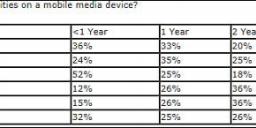
 phantom32.jpg800 x 145 - 29K
phantom32.jpg800 x 145 - 29K -
Nowadays hundreds of millions of people play games on various devices from smartphones to premium PCs built by boutique PC makers. In the future, the number of gamers will increase even further as every newborn child will eventually become a gamer, according to chief exec of Nvidia.
-
Goss margins of big game makers
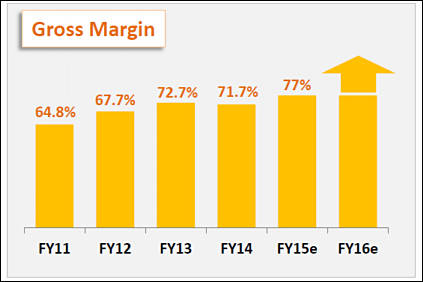

 dog_28.jpg423 x 282 - 20K
dog_28.jpg423 x 282 - 20K -
Very interesting theories and I tend to agree with much of what you are saying Vitaliy. I often wonder what the long term effects of google search and the way the user is steered towards the answers google wants them to see. I'm sure this isn't much different than how a library can steer a researcher or a teacher can steer a student, but it definitely seems more direct now. I believe the political and societal results of this are already measurable to a degree. It's a powerful tool for those who control that.
-
“We are moving from a world where computing power was scarce to a place where it now is almost limitless, and where the true scarce commodity is increasingly human attention” – Satya Nadella
The average human attention span in 2000 was 12 seconds, but by 2013 it was only 8 seconds (1 second shorter than a goldfish).
http://advertising.microsoft.com/en/cl/31966/how-does-digital-affect-canadian-attention-spans
Howdy, Stranger!
It looks like you're new here. If you want to get involved, click one of these buttons!
Categories
- Topics List23,992
- Blog5,725
- General and News1,354
- Hacks and Patches1,153
- ↳ Top Settings33
- ↳ Beginners256
- ↳ Archives402
- ↳ Hacks News and Development56
- Cameras2,367
- ↳ Panasonic995
- ↳ Canon118
- ↳ Sony156
- ↳ Nikon96
- ↳ Pentax and Samsung70
- ↳ Olympus and Fujifilm101
- ↳ Compacts and Camcorders300
- ↳ Smartphones for video97
- ↳ Pro Video Cameras191
- ↳ BlackMagic and other raw cameras116
- Skill1,960
- ↳ Business and distribution66
- ↳ Preparation, scripts and legal38
- ↳ Art149
- ↳ Import, Convert, Exporting291
- ↳ Editors191
- ↳ Effects and stunts115
- ↳ Color grading197
- ↳ Sound and Music280
- ↳ Lighting96
- ↳ Software and storage tips266
- Gear5,420
- ↳ Filters, Adapters, Matte boxes344
- ↳ Lenses1,582
- ↳ Follow focus and gears93
- ↳ Sound499
- ↳ Lighting gear314
- ↳ Camera movement230
- ↳ Gimbals and copters302
- ↳ Rigs and related stuff273
- ↳ Power solutions83
- ↳ Monitors and viewfinders340
- ↳ Tripods and fluid heads139
- ↳ Storage286
- ↳ Computers and studio gear560
- ↳ VR and 3D248
- Showcase1,859
- Marketplace2,834
- Offtopic1,320











